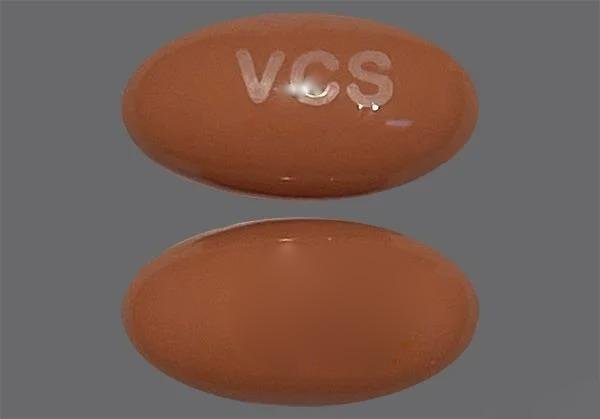Voclosporin Disease Interactions
There are 8 disease interactions with voclosporin.
- Infections
- Liver dysfunction
- Nephrotoxicity
- Neurotoxicities
- PRCA
- QT prolongation
- Vaccination
- Voclosporin – hypertension
Immunosuppressive agents (applies to voclosporin) infections
Major Potential Hazard, Moderate plausibility. Applicable conditions: Infection - Bacterial/Fungal/Protozoal/Viral
Serious and sometimes fatal infections have been reported in patients receiving immunosuppressive agents. Patients receiving immunosuppressants are at increased risk of developing bacterial, viral, fungal, and protozoal infections, and new or reactivated viral infections including opportunistic infections. Caution should be exercised when considering their use in patients with severe or chronic infections. It is recommended to interrupt therapy in patients who develop a new infection while undergoing treatment and to monitor these patients closely for any sign or symptom indicative of infection.
Voclosporin (applies to voclosporin) liver dysfunction
Major Potential Hazard, Moderate plausibility. Applicable conditions: Liver Disease
Voclosporin is predominantly metabolized by CYP450 3A4. Avoid the use of voclosporin in patients with severe hepatic impairment (Child-Pugh C). It is recommended to reduce the dose of voclosporin to 15.8 mg twice a day in patients with mild and moderate hepatic impairment (Child-Pugh A and Child-Pugh B).
Voclosporin (applies to voclosporin) nephrotoxicity
Moderate Potential Hazard, Moderate plausibility. Applicable conditions: Renal Dysfunction
The use of voclosporin, like other calcineurin-inhibitors, can cause acute and/or chronic nephrotoxicity. Voclosporin use is not recommended in patients with a baseline estimated glomerular filtration rate (eGFR) of 45 mL/min/1.73 m2 or less unless the benefit exceeds the risk. A reduced dose should be used when treating patients with severe renal impairment at baseline. No dosage adjustment is recommended in patients with mild or moderate renal impairment at baseline. It is recommended to establish a baseline eGFR and regularly monitor eGFR during treatment. Consideration should be given to the risks and benefits of voclosporin treatment in light of the patient's treatment response and risk of worsening nephrotoxicity. Consider dose reduction or discontinuation in patients with decreases in eGFR from baseline. Persistent decrease of eGFR should be evaluated for chronic calcineurin-inhibitor nephrotoxicity.
Voclosporin (applies to voclosporin) neurotoxicities
Moderate Potential Hazard, Moderate plausibility. Applicable conditions: Neurologic Disorder, Posterior Reversible Encephalopathy Syndrome, Psychosis, Seizures
The use of voclosporin may cause a spectrum of neurotoxicities. It is recommended to monitor for neurologic symptoms and to consider dosage reduction or discontinuation if neurotoxicity occurs. Care should be exercised when using this drug in patients with preexisting neurological conditions such as seizures, delirium, posterior reversible encephalopathy syndrome.
Voclosporin (applies to voclosporin) PRCA
Moderate Potential Hazard, Moderate plausibility. Applicable conditions: Infection - Bacterial/Fungal/Protozoal/Viral, Pure Red Cell Aplasia
Calcineurin-inhibitors, may cause pure red cell aplasia (PRCA). Care should be exercised when using voclosporin in patients at risk for PRCA, such as parvovirus B19 infection, underlying disease, or concomitant medications associated with PRCA. It is recommended to consider treatment discontinuation if PRCA is diagnosed.
Voclosporin (applies to voclosporin) QT prolongation
Moderate Potential Hazard, Moderate plausibility. Applicable conditions: Arrhythmias
The use of voclosporin prolongs the QTc interval in a dose-dependent manner. Studies have demonstrated that after a single dose administration at a dose higher than the recommended lupus nephritis therapeutic dose, dose-dependent QT prolongation effect was observed. Care is recommended when using this drug in patients at risk, such as patients taking concomitant drugs known to prolong the QTc interval, patients with bradycardia, hypokalemia, or hypomagnesemia, and the presence of congenital prolongation of the QT interval. Consider obtaining electrocardiograms and monitoring electrolytes in patients at high risk.
Voclosporin (applies to voclosporin) vaccination
Moderate Potential Hazard, Moderate plausibility.
The use of live vaccines should be avoided during treatment with voclosporin, including but not limited to the intranasal influenza, measles, mumps, rubella, oral polio, BCG, yellow fever, varicella, and TY21a typhoid vaccines. In addition, inactivated vaccines noted to be safe for administration may not be sufficiently immunogenic during treatment with voclosporin.
Voclosporin – hypertension
Moderate Potential Hazard, Moderate plausibility.
The use of voclosporin causes hypertension. Exercise care when using this agent in hypertensive patients, including patients on antihypertensive drugs. It is recommended to monitor blood pressure regularly during treatment and treat new-onset hypertension and exacerbations of preexisting hypertension according to medical practices. If a patient experiences increases in blood pressure that cannot be managed with dose reduction or other appropriate medical intervention, consider treatment discontinuation.
Switch to professional interaction data
Voclosporin drug interactions
There are 885 drug interactions with voclosporin.
Voclosporin alcohol/food interactions
There are 2 alcohol/food interactions with voclosporin.
More about voclosporin
- voclosporin consumer information
- Check interactions
- Compare alternatives
- Side effects
- Dosage information
- During pregnancy
- Drug class: calcineurin inhibitors
- Breastfeeding
- En español
Related treatment guides
Drug Interaction Classification
| Highly clinically significant. Avoid combinations; the risk of the interaction outweighs the benefit. | |
| Moderately clinically significant. Usually avoid combinations; use it only under special circumstances. | |
| Minimally clinically significant. Minimize risk; assess risk and consider an alternative drug, take steps to circumvent the interaction risk and/or institute a monitoring plan. | |
| No interaction information available. |
See also:
Further information
Always consult your healthcare provider to ensure the information displayed on this page applies to your personal circumstances.


